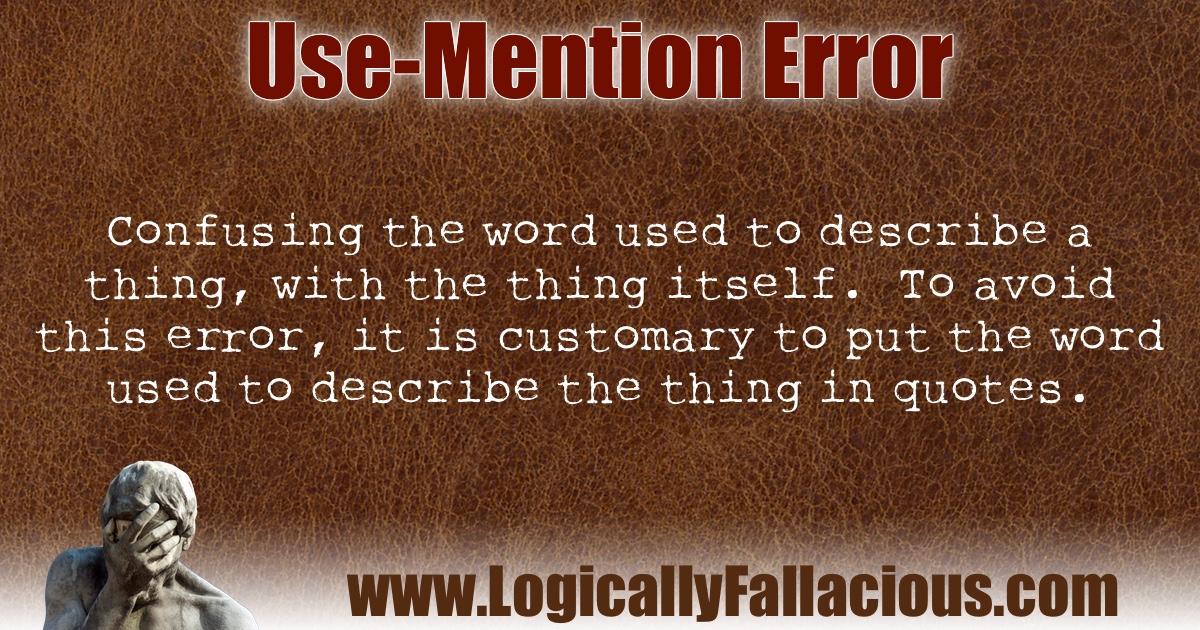(also known as: UME)
Description: Confusing the word used to describe a thing, with the thing itself. To avoid this error, it is customary to put the word used to describe the thing in quotes.
This fallacy is most common when used as an equivocation.
Logical Form:
“X” is the same as X.
Example #1:
My son is made up of five letters.
Example #2:
Tyrone: I am a sophisticated word genius.
Suzie: Prove it. Define some.
Tyrone: An unspecified amount or number of. Proven!
Example #3: Many podcast hosts, journalists, and other public figures who discuss issues of race have got themselves in serious trouble by reporting on people who use the “N-word,” by actually using the word themselves (I won’t use it here because I don’t want to be one of those casualties). This is because a small, but vocal, group view the mention of the word as nefarious as the use of the word, when the two are substantially different.
Explanation: Suzie meant to “define some words” but Tyrone defined the word “some.” Tyrone thinks he won the exchange but he did not really define any sophisticated words.
Exception: When this “fallacy” is used in humor and riddles.
Fun Fact: What part of London is in France? The letter “n.”
Explanation: The words (mention), “my son”, are made up of five letters. My son (use) is made up of molecules.
